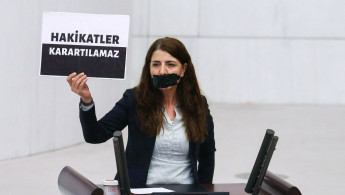Turkey parliament adopts media law jailing those spreading 'disinformation'
Turkey's parliament on Thursday adopted a law proposed by President Recep Tayyip Erdogan that would jail journalists and social media users for up to three years for spreading "disinformation", despite deep concerns over free speech.
Lawmakers from Erdogan's ruling AK Party (AKP) and its nationalist allies MHP, which together have a majority, voted to approve the bill even as opposition MPs, European countries and media rights activists have called to scrap it.
The law's Article 29 raised the most concerns over free expression.
It says those who spread false information online about Turkey's security to "create fear and disturb public order" will face a prison sentence of one to three years.
Critics have said there is no clear definition of "false or misleading information", leaving the law open to abuse by courts they say have cracked down aggressively on open dissent in recent years in the country of some 85 million.
Engin Altay, MP from the main opposition Republican People's Party (CHP), said minutes before the final vote that the country already trails most others in press freedom and the law makes it "impossible to categorise on these lists".
Erdogan's AKP has said legislation was needed to tackle misinformation and false accusations on social media and would not silence opposition.
The bill now goes to the president for final approval.
The issue of media freedom is of growing significance ahead of next year's presidential and parliamentary elections, with surveys showing support for Erdogan and his AKP tumbling since the last vote.
A Reuters investigation recently showed how the mainstream media has become a tight chain of command of government-approved headlines, while the smaller independent and opposition media face the brunt of regulatory penalties.
The Venice Commission, which advises the rights watchdog Council of Europe, said it is particularly concerned about consequences of the law's prison provision, "namely the chilling effect and increased self-censorship" ahead of the vote.
(Reuters)





 Follow the Middle East's top stories in English at The New Arab on Google News
Follow the Middle East's top stories in English at The New Arab on Google News


